|
Books Should Be Free Loyal Books Free Public Domain Audiobooks & eBook Downloads |
|
|
Books Should Be Free Loyal Books Free Public Domain Audiobooks & eBook Downloads |
|
Non-fiction |
|---|
|
Book type:
Sort by:
View by:
|
By: H. G. Wells (1866-1946) | |
|---|---|
 God, the Invisible King
God, the Invisible King
Wells wrote in his book God the Invisible King that his idea of God did not draw upon the traditional religions of the world: "This book sets out as forcibly and exactly as possible the religious belief of the writer. [Which] is a profound belief in a personal and intimate God." Later in the work he aligns himself with a "renascent or modern religion ... neither atheist nor Buddhist nor Mohammedan nor Christian ... [that] he has found growing up in himself." | |
By: Clarence Edwords (b. 1856) | |
|---|---|
 Bohemian San Francisco
Bohemian San Francisco
While describing his dining experiences throughout “Bohemian San Francisco,” Clarence Edwords paints an historic panorama of California cuisine with all its cosmopolitan influences. Best of all, he offers tantalizing recipes culled from conversations with the master chefs of 1914 in “The City by the Bay.” | |
By: Theodore Roosevelt | |
|---|---|
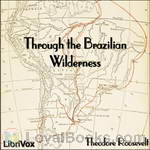 Through the Brazilian Wilderness
Through the Brazilian Wilderness
Roosevelt’s popular book Through the Brazilian Wilderness describes his expedition into the Brazilian jungle in 1913 as a member of the Roosevelt-Rondon Scientific Expedition co-named after its leader, Brazilian explorer Cândido Rondon. The book describes all of the scientific discovery, scenic tropical vistas and exotic flora, fauna and wild life experienced on the expedition. One goal of the expedition was to find the headwaters of the Rio da Duvida, the River of Doubt, and trace it north to the Madeira and thence to the Amazon River... | |
 Hunting the Grisly and Other Sketches
Hunting the Grisly and Other Sketches
| |
By: Helen Hunt Jackson (1830-1885) | |
|---|---|
 Bits About Home Matters
Bits About Home Matters
This book is a collection of short observations by Helen Hunt Jackson, several with children and parenting as the subject matter. | |
By: Harriet Jacobs (1813-1897) | |
|---|---|
 Incidents in the Life of a Slave Girl, Written by Herself
Incidents in the Life of a Slave Girl, Written by Herself
Born in slavery, but being fortunate enough to be owned by a benevolent mistress, her life takes a tragic turn when her parents and her benefactor die. The new heir to the property (and slaves) is a cruel and lewd man who begins to make inappropriate advances to the lovely young slave-girl. In a bid to escape, she becomes entangled in a relationship with a neighboring landowner who promises a better life, and she even has two children. However, things become worse for her when her cruel owner decides to punish her by sending her and her children to a distant cotton plantation to be “broken in... | |
By: Irwin S. Cobb (1876-1944) | |
|---|---|
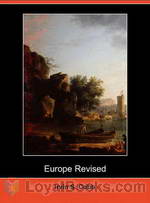 Europe Revised
Europe Revised
Irwin Cobb’s humorous Europe Revised is a travelogue and comedy almost in the style of Mark Twain. The dedication says it best, “To My Small DaughterWho bade me shed a tear at the tomb of Napoleon, which I was very glad to do, because when I got there my feet certainly were hurting me.” | |
By: William James (1842-1910) | |
|---|---|
 Essays in Radical Empiricism
Essays in Radical Empiricism
William James (1842 – 1910) was a pioneering American psychologist and philosopher. He wrote influential books on the young science of psychology, educational psychology, psychology of religious experience and mysticism, and the philosophies of pragmatism and Radical Empiricism. Essays in Radical Empiricism is a collection edited and published posthumously by his colleague and biographer Ralph Barton Perry in 1912. It was assembled from a collection of reprinted journal articles published from 1904–1905 which James had deposited in August 1906 at Harvard University, for supplemental use by his students. | |
 Varieties of Religious Experience
Varieties of Religious Experience
The Varieties of Religious Experience: A Study in Human Nature is a book by the Harvard psychologist and philosopher William James that comprises his edited Gifford Lectures on "Natural Theology" delivered at the University of Edinburgh in Scotland between 1901 and 1902. These lectures concerned the nature of religion and the neglect of science, in James' view, in the academic study of religion. Soon after its publication, the book found its way into the canon of psychology and philosophy, and has remained in print for over a century. | |
 Pragmatism
Pragmatism
'Pragmatism' contains a series of public lectures held by William James in Boston 1906–7. James provides a popularizing outline of his view of philosophical pragmatism while making highly rhetorical and entertaining lashes towards rationalism and other competing schools of thought. James is especially concerned with the pragmatic view of truth. True beliefs should be defined as, according to James, beliefs that can successfully assist people in their everday life. This is claimed to not be relativism... | |
By: Harry Houdini | |
|---|---|
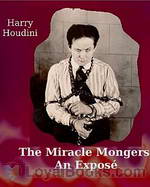 The Miracle Mongers, an Exposé,
The Miracle Mongers, an Exposé,
“A complete exposé of the modus operandi of fire eaters, heat resisters, poison eaters, venomous reptile defiers, sword swallowers, human ostriches, strong men, etc.”, [by Harry Houdini, from the subtitle]. | |
By: M. M. Mangasarian (1859-1943) | |
|---|---|
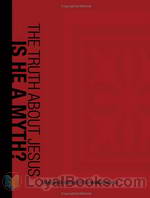 The Truth About Jesus. Is He a Myth?
The Truth About Jesus. Is He a Myth?
The following work offers in book form the series of studies on the question of the historicity of Jesus, presented from time to time before the Independent Religious Society in Orchestra Hall, Chicago, 1909. No effort has been made to change the manner of the spoken, into the more regular form of the written, word. | |
By: Lady Lucie Duff-Gordon (1821-1869) | |
|---|---|
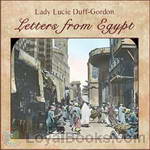 Letters from Egypt
Letters from Egypt
As a girl, Lady Duff-Gordon was noted both for her beauty and intelligence. As an author, she is most famous for this collection of letters from Egypt. Lady Duff-Gordon had tuberculosis, and went to Egypt for her health. This collection of her personal letters to her mother and her husband. By all accounts everyone loved her, and the letters are very personal in style and content. The letters are as much an introduction to her person as a record of her life on the Upper Nile. | |
By: J. Arthur Thomson (1861-1933) | |
|---|---|
 The Outline of Science
The Outline of Science
The Outline of Science, Volume 1 was written specifically with the man-on-the-street in mind as the target audience. Covering scientific subjects ranging from astronomy to biology to elementary physics in clear, concise and easily understood prose, this popular science work is largely as relevant today as when first published in 1922. Special emphasis is given to the principles of biological adaptation and evolution, especially how they relate to the rise of the human species from lower orders. Also included are the basics of the (then) fairly new concept of relativity and its impact on emerging scientific theories... | |
By: Herbert Allen Giles (1845-1935) | |
|---|---|
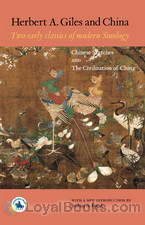 China and the Chinese
China and the Chinese
Herbert Allen Giles (1845-1935) spent several years as a diplomat in China and in 1897 was appointed Cambridge University’s second professor of Chinese. His published works cover Chinese language and literature, history and philosophy. This series of lectures, published as “China and the Chinese”, was given at Columbia University in 1902, to mark the establishment of a Chinese professorship there. The lectures were not intended for the specialist, more to urge a wider and more systematic study of China and its culture, and to encourage new students into the field... | |
By: Friedrich Schiller | |
|---|---|
 The Thirty Years War
The Thirty Years War
The History of the Thirty Years War is a five volume work, which followed his very successful History of the Revolt of the Netherlands. Written for a wider audience than Revolt, it is a vivid history, colored by Schiller’s own interest in the question of human freedom and his rationalist optimism. Volume 1 covers the background of the war, through the Battle of Prague in late 1620. (Introduction by Alan Winterrowd) | |
By: Thomas Henry Huxley (1825-1895) | |
|---|---|
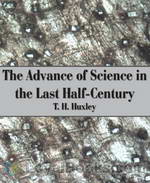 The Advance of Science in the Last Half-Century
The Advance of Science in the Last Half-Century
Thomas H. Huxley, an English biologist and essayist, was an advocate of the theory of evolution and a self-proclaimed agnostic. A talented writer, his essays helped to popularize science in the 19th century, and he is credited with the quote, “Try to learn something about everything and everything about something.” In The Advance of Science in the Last Half Century, he presents a summary of the major developments in Physics, Chemistry and Biology during the period 1839-1889 and their impact on society, within the historical context of philosophical thought and scientific inquiry going back to Aristotle... | |
By: Okakura Kakuzo (1863-1913) | |
|---|---|
 The Book of Tea
The Book of Tea
The Book of Tea was written by Okakura Kakuzo in the early 20th century. It was first published in 1906, and has since been republished many times. – In the book, Kakuzo introduces the term Teaism and how Tea has affected nearly every aspect of Japanese culture, thought, and life. The book is noted to be accessibile to Western audiences because though Kakuzo was born and raised Japanese, he was trained from a young age to speak English; and would speak it all his life, becoming proficient at communicating his thoughts in the Western Mind... | |
By: John Ruskin (1819-1900) | |
|---|---|
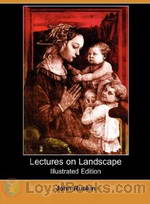 Lectures on Landscape
Lectures on Landscape
A series of lectures on landscape painting delivered at Oxford in 1871, by artist, critic, and social commentator, John Ruskin. | |
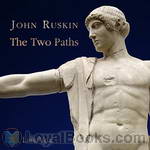 The Two Paths
The Two Paths
"The Two Paths" is a collection of five lectures delivered in 1858 and 1859 by John Ruskin on art and architecture. This is how the author himself presents the book: "The following addresses, though spoken at different times, are intentionally connected in subject; their aim being to set one or two main principles of art in simple light before the general student, and to indicate their practical bearing on modern design. The law which it has been my effort chiefly to illustrate is the dependence of all noble design, in any kind, on the sculpture or painting of Organic Form." The most famous of these, the fifth lecture, is commonly known simply as "The Work of Iron" | |
 The Stones of Venice, volume 1
The Stones of Venice, volume 1
The Stones of Venice is a three-volume treatise on Venetian art and architecture by English art historian John Ruskin, first published from 1851 to 1853. Intending to prove how the architecture in Venice exemplified the principles he discussed in his earlier work, The Seven Lamps of Architecture, Ruskin examined the city in detail, describing for example over eighty churches. He discusses architecture of Venice's Byzantine, Gothic and Renaissance periods, and provides a general history of the city as well... | |
By: Epictetus (c.55-135) | |
|---|---|
 The Golden Sayings of Epictetus
The Golden Sayings of Epictetus
Aphorisms from the Stoic Greek. | |
By: Myrtle Reed (1874-1911) | |
|---|---|
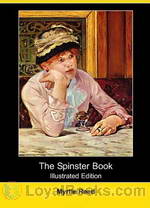 The Spinster Book
The Spinster Book
A cross between guidebook and social commentary, The Spinster Book gives clever and humorous insights on topics such as courting, handling men and women, love letters, marriage and spinsterhood. | |
By: Warren Hilton (1874-?) | |
|---|---|
 Initiative Psychic Energy
Initiative Psychic Energy
Learn how to accomplish your goals through increasing your mental power, avoiding energy drains, and becoming more mentally efficient. | |
By: Ludwig van Beethoven (1770-1827) | |
|---|---|
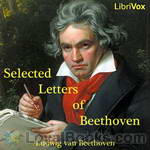 Selected Letters of Beethoven
Selected Letters of Beethoven
A selection of Beethoven’s letters from the compilation by Dr. Ludwig Nohl and translated by Lady Grace Wallace. | |
By: Frank Lewis Dyer and Thomas Commerford Martin | |
|---|---|
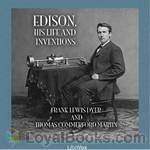 Edison, His Life and Inventions
Edison, His Life and Inventions
One of the most prolific and multi-talented geniuses the world has ever seen, Thomas Alva Edison's life is indeed an inspiration for each new generation. Today we live in a world that would not have been possible if not for several of his important inventions – the electric light bulb, the motion picture camera, electric power distribution, the phonograph, and a host of other things that we take for granted today. In fact, he still holds the world record for the maximum number of patents, numbering 1093 in all! Edison – His Life and Inventions by Frank Lewis Dyer and Thomas Commerford Martin, published in 1910 was in fact a biography commissioned by Edison himself... | |
By: George Santayana (1863-1952) | |
|---|---|
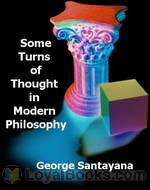 Some Turns of Thought in Modern Philosophy
Some Turns of Thought in Modern Philosophy
Before the beginning of World War II, during the time of the Modernist movement in philosophy, George Santayana wrote these five descriptive essays. He examined John Locke’s sensationalism, British Idealism, the “Theory of Relativity”, Freud’s psychology, and Julien Benda’s preachment on the relations between God and the world. [Summary written by Gary Gilberd] | |
 The Life of Reason volume 1
The Life of Reason volume 1
The Life of Reason, subtitled "the Phases of Human Progress", is a book published in five volumes from 1905 to 1906, by Spanish-born American philosopher George Santayana (1863-1952). It consists of Reason in Common Sense, Reason in Society, Reason in Religion, Reason in Art, and Reason in Science. The work is considered to be the most complete expression of Santayana's moral philosophy [...]. Santayana's philosophy is strongly influenced by the materialism of Democritus and the refined ethics of Aristotle, with a special emphasis on the natural development of ideal ends... | |
 Winds of Doctrine: Studies in Contemporary Opinion
Winds of Doctrine: Studies in Contemporary Opinion
Even before the Great War turned the world upside down, Western civilization was being revolutionized at all levels: intellectually, philosophically, artistically. Noted positivist philosopher George Santayana published this volume on the eve of the War, trying to portray the status of philosophy and theology at that moment by analyzing six significant topics: 1. the intellectual "temper" of the age 2. the clash between Modernism and Christianity 3. the new idealism of Henri Bergson 4. the new skepticism of Bertrand Russell 5. Shelley's fusion of philosophy and poetry 6. the so-called "genteel" tradition in American philosophy. | |
By: Olaudah Equiano (1745-1797) | |
|---|---|
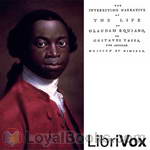 The Interesting Narrative of the Life of Olaudah Equiano, Or Gustavus Vassa, The African
The Interesting Narrative of the Life of Olaudah Equiano, Or Gustavus Vassa, The African
The Interesting Narrative of the Life of Olaudah Equiano, written in 1789, is the autobiography of Olaudah Equiano. It discusses his time spent in slavery, serving primarily on galleys, documents his attempts at becoming an independent man through his study of the Bible, and his eventual success in gaining his own freedom and in business thereafter. The book contains an interesting discussion of slavery in West Africa and illustrates how the experience differs from the dehumanising slavery of the Americas... | |
By: Henry Fielding (1707-1754) | |
|---|---|
 Journal of a Voyage to Lisbon
Journal of a Voyage to Lisbon
Sailing voyage from England to Portugal in the mid Eighteenth Century, by one of the premier humorists, satirists, novelists and playwrights of his age. It was to be his last work, as his failing health proved unable to persevere much longer after the voyage. | |
By: Thomas de Quincey (1785-1859) | |
|---|---|
 Miscellaneous Essays
Miscellaneous Essays
The Hunter Thompson of the 19th Century, de Quincey is best known for his Confessions of an English Opium Eater (an activity shared with his hero, Samuel Coleridge, much to Wordsworth’s dismay). However, de Quincey’s literary genius is best captured in his essays, and, according to Wikipedia: His immediate influence extended to Edgar Allan Poe, Fitz Hugh Ludlow and Charles Baudelaire, but even major 20th century writers such as Jorge Luis Borges admired and claimed to be partly influenced by his work. | |